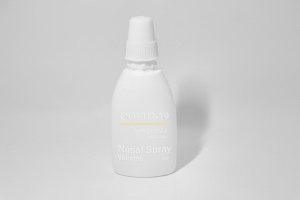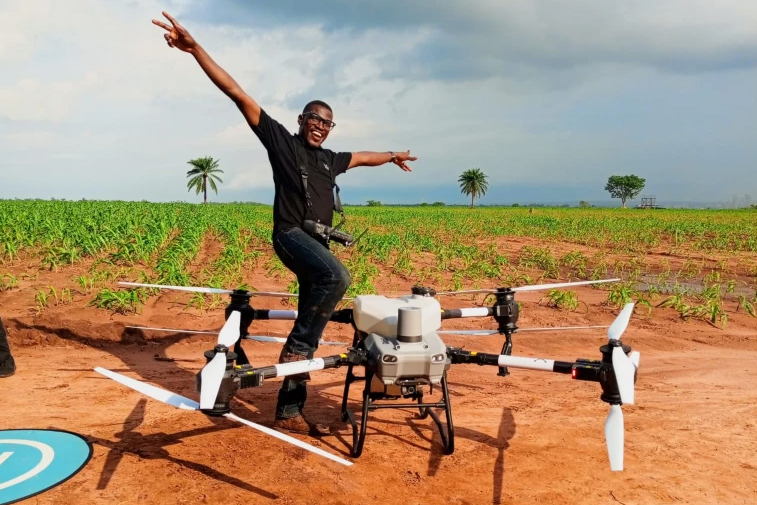
COVID-19 Notes
Pandemic continues despite widespread vaccination. Individuals who receive injectable COVID-19 vaccines may be protected against serious illness but can still become infected by a different version of a higher variant with immune escape capability.
Will nasal vaccine be able to serve as final tool in our fight against deadly contagion?
Do nasal vaccines induce a strong and systemic immune response comparable to intramuscular vaccines?
Nasal vaccines may be the best way to prevent infections and further transmission in long term, because they provide protection exactly where it is needed to fend off the virus: the mucosal linings of the airways, where the coronavirus first lands.
Apparent doubts and fears are many because nasal vaccines are a new tool. But animal studies have so far indicated that intranasal vaccines are actually good in inducing strong systemic response at least in initial trials.
In addition, the researchers have found that after intranasal vaccination, the virus isolated from nose was less infectious than in subjects who had not been given nasal spray of vaccine.
Why do we need nasal vaccines?
Currently available vaccines produce powerful, long-lasting immunity against severe illness, as several studies have recently shown. But their protection against infection from the coronavirus is transient, and can falter as new variants of the virus emerge — a failing that has prompted talk of regular booster shots.
Can we live forever sheltering vulnerable population boosting them again and again?
The current Covid vaccines are injected into muscle, and excel at training immune cells to tackle the virus after it has entered the body. They produce antibodies called IgG that circulate in the blood and can be marshaled when needed. But few of these antibodies travel to the nose and throat, and even those that do wane quickly.
The so-called mucosal vaccines ideally would coat the mucosal surfaces of the nose, mouth and throat with long-lasting antibodies, and would be much better at preventing infection and spread of the virus. Nasal oral vaccines are being developed and vaccination even by nabulization coating the entire nose throat and lung airways can be tried.
With so much population already vaccinated by injectable vacvines world over, will nasal vaccination boost already existing immunity?
Nasal vaccine can be used as a primary vaccine as well as a booster, to boost the existing immunity that’s already created.
Nasal vaccines have been shown to protect mice, ferrets, hamsters and monkeys against the coronavirus. A recent study offered powerful evidence in support of nasal vaccine use as a booster.
Did scientist falter by developing injectable vaccines?
No. Injected vaccines are the right approach at the beginning of the pandemic. They satisfy the urgent need of generating the systemic immunity needed to prevent death and disease, the urgent goal!
That was a good first step, but to end pandemic we need to have intranasal vaccines ready for boosting the local and systemic immunity.
Immunizing entire populations with a nasal or oral vaccine would be faster in the middle of a surge than injections, which require skill and time to administer. A nasal vaccine is likely to be more palatable to many (including children) than painful shots, and would circumvent shortages of needles, syringes and other materials.
Why are we slow in developing nasal vaccine?
Injectable vaccines just can’t be used as nasal vaccines. We need more stable and immunogenic vaccines.
Existing immunity to the previously exposed virus in NALT (nasopharynx associated lymphoid tissue)may render the vaccine ineffective.So developing nasal vaccines is complicated.
Measuring mucosal IgA antibodies is much more difficult than quantifying antibodies in the blood. The amounts are often low and can fluctuate wildly. For example, the aroma of a delicious meal may flood the mouth with saliva, diluting mucosal antibody levels.
Trying to enhance the vaccine with an extra ingredient, called an adjuvant, actually inflamed the nasal mucosa and lead to Bell’s palsy in some cases.
Is nasal vaccine a new concept?
No history of nasal vaccination dates back to 18th Century when dried scab from small pox pustules was crushed and powder blown into the nose using a long pipe. See video
Is there any existing nasal vaccine?
The only nasal vaccine approved (in the United States for respiratory diseases) is FluMist, and even that has been riddled with problems. FluMist relies on a weakened flu virus, so it works well in children who have never been exposed. But in many adults, existing immunity to flu killed the weakened virus and left the vaccine ineffective.
Canine distemper is good example of successful nasal vaccine used in puppies.
Which companies are at the forefront of developing nasal vaccine against Covid?
Bharat Biotech is the world’s leading manufacturer. However, there are at least a dozen other nasal vaccines in development worldwide, some of them now in Phase 3 trials. But Bharat Biotech’s vaccine may be the first to become available. In January, the company won approval to begin a Phase 3 trial of the nasal spray in India as a booster for people who have already received two shots of a Covid vaccine.
Next we talk of various nasal vaccines, their technology, phase of development and likely timeline of availability. Stay tuned.
Also read: Is India showing signs of ending COVID-19 pandemic?
*Dr. Satish K Gupta is an MD in Medicines, a Visiting Senior Consultant Physician and Internist at Max Super Speciality Hospital, and a Clinical Assistant Professor at GS Medical College, Chaudhary Charan Singh University, Meerut. He is the author of Journey of COVID in India: A Doctor’s Perspective.


 By Dr. Satish K Gupta*
By Dr. Satish K Gupta*


